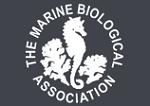APHOTOMARINE
An educational resource dedicated mainly to the photography
and diversity of marine life that can be found in coastal waters
and intertidal areas of Great Britain and Ireland by David Fenwick.

Sacculina carcini
- on abdomen of juvenile Shore Crab, Carcinus maenas 1
Crab hacker barnacle
Sacculina carcini
- on abdomen of juvenile Shore Crab, Carcinus maenus 2
Specimen above found on the abdomen of a juvenile Carcinus maenas, Shore Crab on the shore at Baiter Point, Poole Quay, Poole, Dorset, 12.09.18.
Crab hacker barnacle
Sacculina carcini
- on Carcinus maenas 1
Crab hacker barnacle
Sacculina carcini
- on Carcinus maenus 2
Crab hacker barnacle
Sacculina carcini
- on Carcinus maenus 3
Crab hacker barnacle
Sacculina carcini
- on Carcinus maenus 4
Crab hacker barnacle
Sacculina carcini
- on Carcinus maenus 5
Crab hacker barnacle
Sacculina carcini
- on Carcinus maenus 6
Crab hacker barnacle
Sacculina carcini
- barnacle close-up 1
Crab hacker barnacle
Sacculina carcini
- barnacle close-up 2
Crab hacker barnacle
Sacculina carcini
- removed from host 1
Crab hacker barnacle
Sacculina carcini
- with 1.0mm division rule 1
Crab hacker barnacle
Sacculina carcini
- microscopic nauplius larva from within barnacle 1
Crab hacker barnacle
Sacculina carcini
- microscopic nauplius larva from within barnacle 2
Specimen above found on the abdomen of a Shore crab at Chimney Rocks, Penzance, Cornwall, 08.08.17.
Crab hacker barnacle
Sacculina carcini
- barnacle attached to female abdomen 1
Crab hacker barnacle
Sacculina carcini
- barnacle attached to female abdomen 2
Crab hacker barnacle
Sacculina carcini
- barnacle attached to female abdomen 3
Specimen above found on the abdomen of a female Shore crab at Treath, Helford, Cornwall, 08.10.17.
APHOTOMARINE supports open source data recording and sharing for the benefit of wildlife, recorders, research, science and education. The project recommends the following websites and works with the following bodies and organisations.
The Marine Biological Association or MBA, based in Plymouth, is one of the world’s longest-running societies dedicated to promoting research into our oceans and the life they support. Since 1884 the MBA has been providing a unified, clear, independent voice on behalf of the marine biological community.It has a growing membership in over 40 countries.
The National Biodiversity Network or NBN is a charity that supports open source data sharing and recording supporting conservation, science and education. "Why do recorders need open source?". Simply because it supports the core values of wildlife recording and the free use of records and data over a very wide network that includes partners like the Natural History Museum.
The taxonomy used here is based on that of the following database, which is also used by the MBA, NHM and the NBN.
The World Register of Marine Species or WoRMS.

